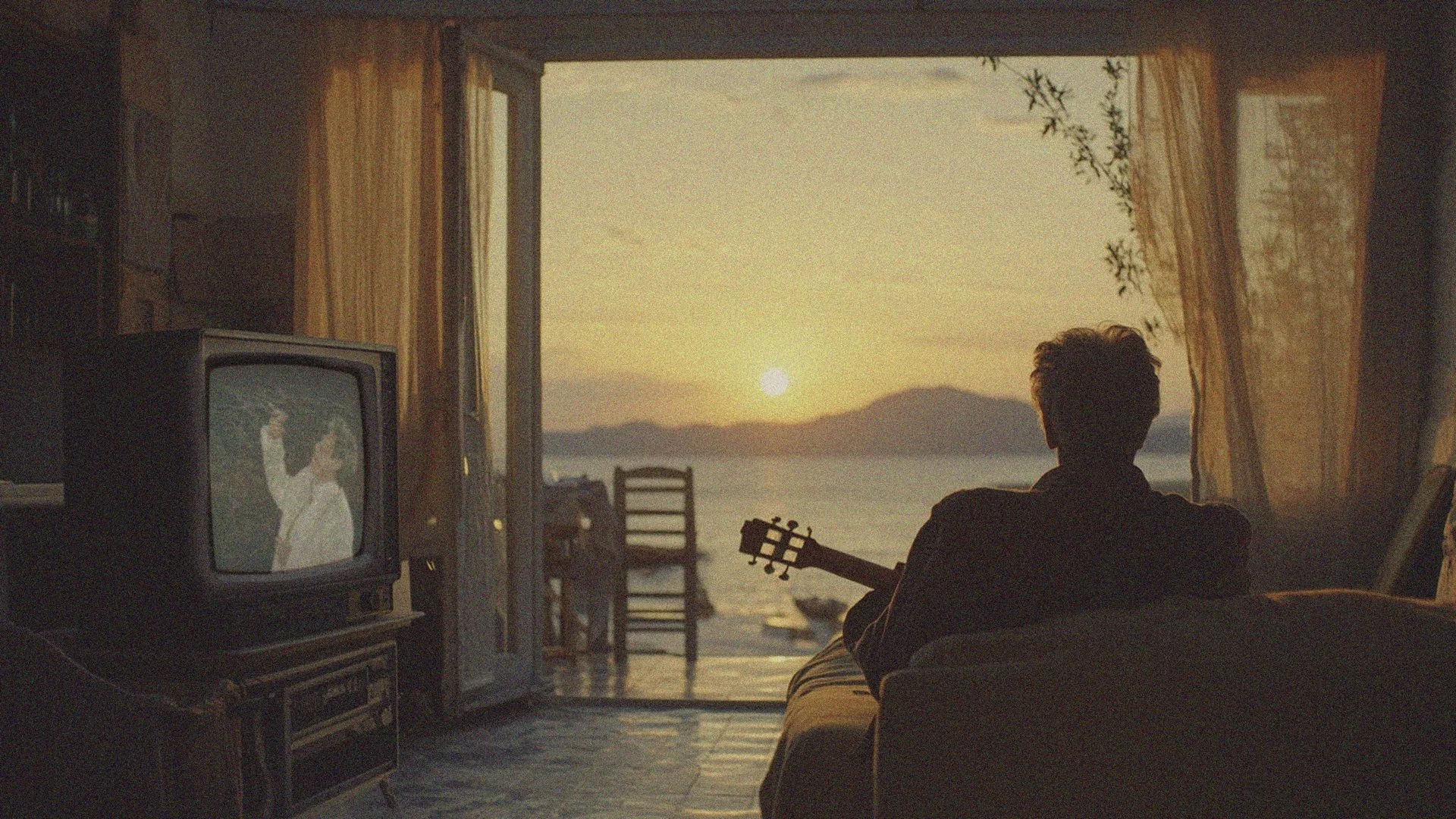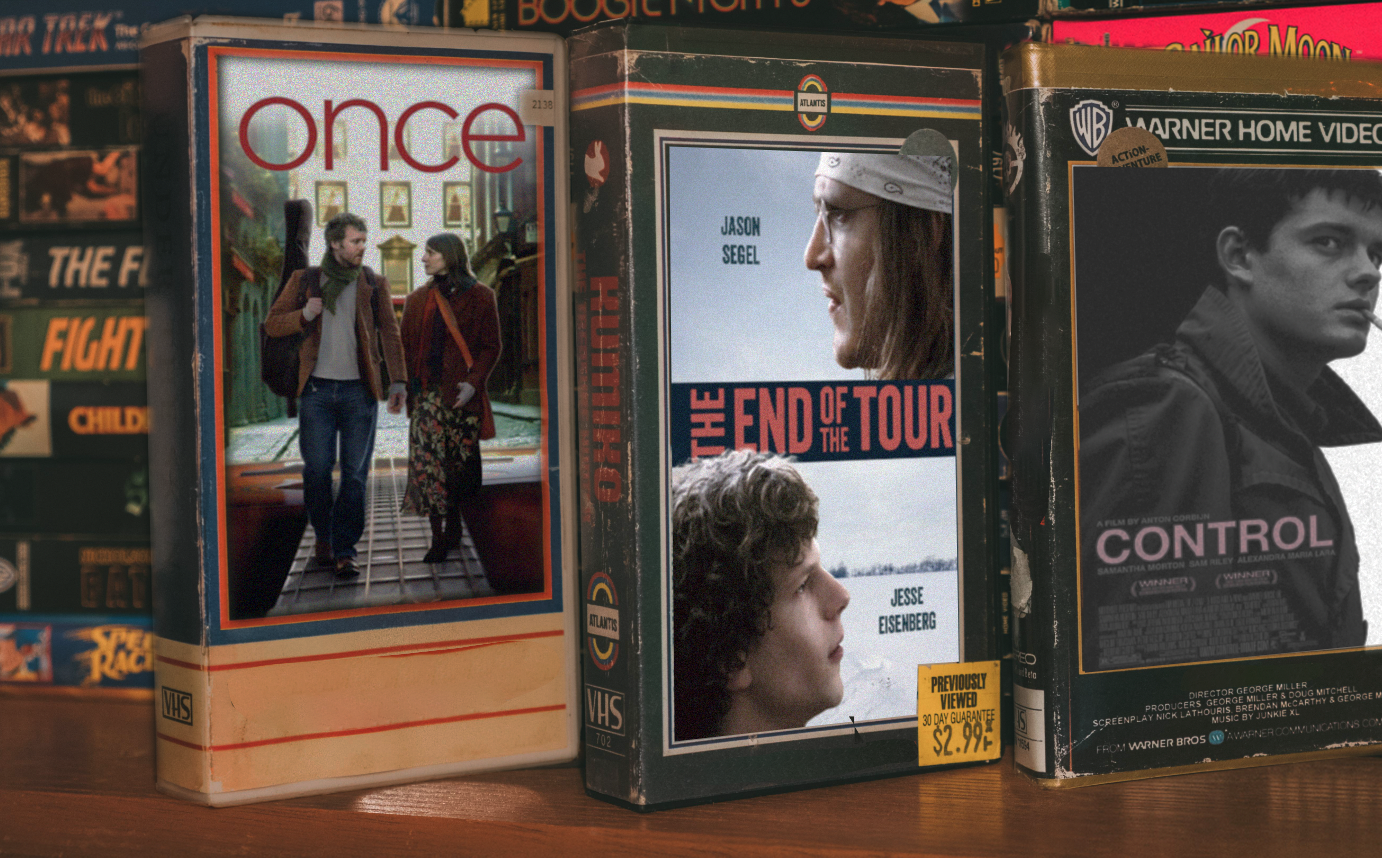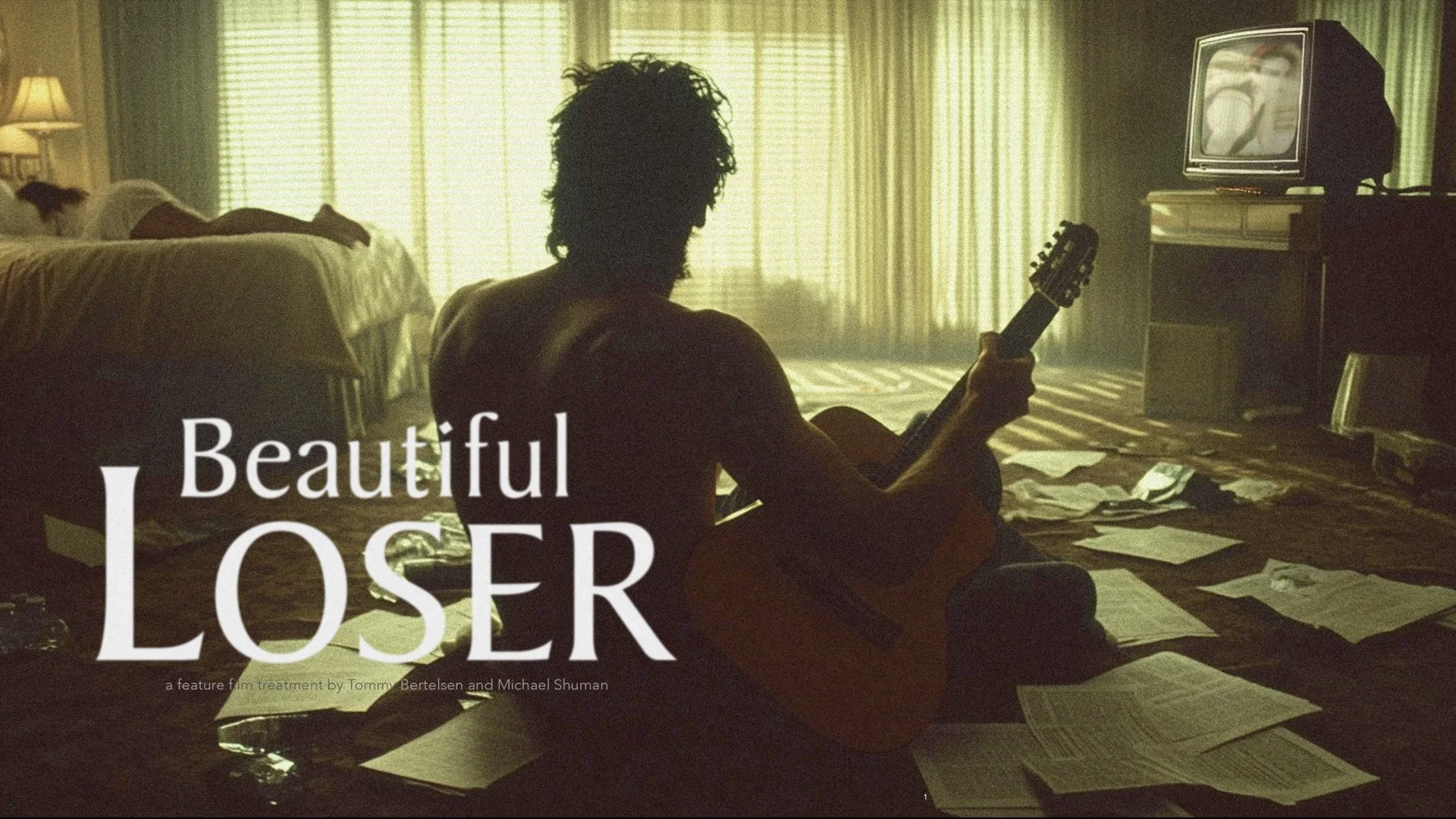
In the flashy era of 1980s pop, a fading folk icon (Leonard Cohen) and his abandoned producer (John Lissauer) reunite to reinvent Cohen's career through the creation of a new album. Facing industry rejection, personal demons, and past betrayal, this is the true story of a song's unlikely journey to become one of the greatest hymns ever written — and the most successful failure in music history.
BEAUTIFUL LOSER is a compressed biopic about the creation of a pivotal song in the career of a music legend.
Told almost entirely over the course of four months, our intimate story follows the faded folk singer while first recording his now-iconic track "Hallelujah." Anchored by the complicated friendship between Cohen and his producer, our movie follows a collaboration strained by past betrayal, demanding record producers, addictions, and ambitions as John is dragged back into the orbit of his idol in pursuit of an elusive dream.
Tragically, the resulting album would be so despised by executives that Columbia initially refused to even release it, cut John Lissauer out of all future royalties, and blacklisted him from the label. Facts made all the more poignant by the arc of history because years later Cohen’s composition would become one of the most recognizable and beloved songs ever recorded — featured across a multitude of iconic films and covered by over 300 artists including Jeff Buckley, John Cale, Paul McCartney, and Bob Dylan.
An old folk hero fighting for relevance. A young producer searching for purpose. And two men struggling to be something greater than themselves. This is the story of Hallelujah.
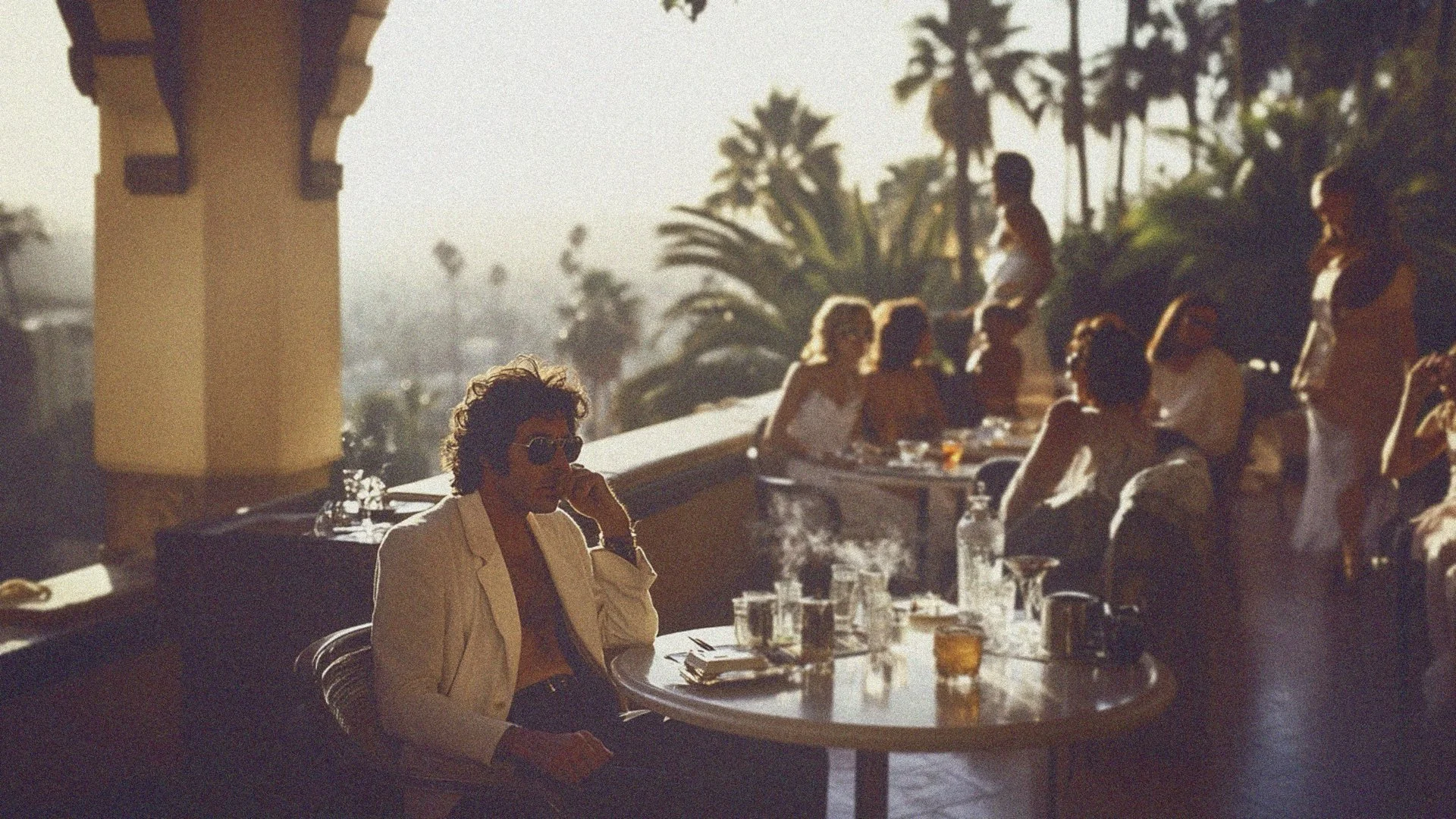
COLD OPEN
CHATEAU MARMONT, LOS ANGELES – 1975
Golden light filters through gauzy curtains as LEONARD COHEN (40) watches JOHN LISSAUER (27) at the piano. Empty wine bottles and overflowing ashtrays surround them — remnants of days spent creating.
John plays back a recording. As it fills the room, Leonard's face darkens subtly. When John looks expectantly at him, Leonard merely offers, "It came too easy." John's confusion is evident, but Leonard stands firm: "The good ones make you work for them.”
The phone rings. After a brief exchange, Leonard informs John that Marty's in town. John begins gathering his notes — he doesn't need to be told he's not invited. Before leaving, he mentions his farmhouse renovations are almost done. Leonard nods, already somewhere else.
Later, in an upscale restaurant, Leonard’s manager MARTY MACHAT (40s) leans across a pristine tablecloth. “Phil fucking Spector. I’ve got it all lined up for you” he says. “You need to stop wasting your time out here with Lissauer.” Leonard takes a slow sip of his drink, his expression unreadable.
Across the room, a brash music attorney WALTER YETNIKOFF (40s) enters with a stunning GIRLFRIEND (20s). Marty calls him over. After introductions, Leonard and the girlfriend exchange a subtle look as she walks away. "What about John?" Leonard asks, watching her enter the restroom. "I'll handle John," Marty says dismissively.
Later, in the bathroom, Leonard and Walter's girlfriend have a brief, empty encounter. Afterward, Leonard studies his reflection in the mirror — a man divided against himself. The title card appears over his face —
BEAUTIFUL LOSER
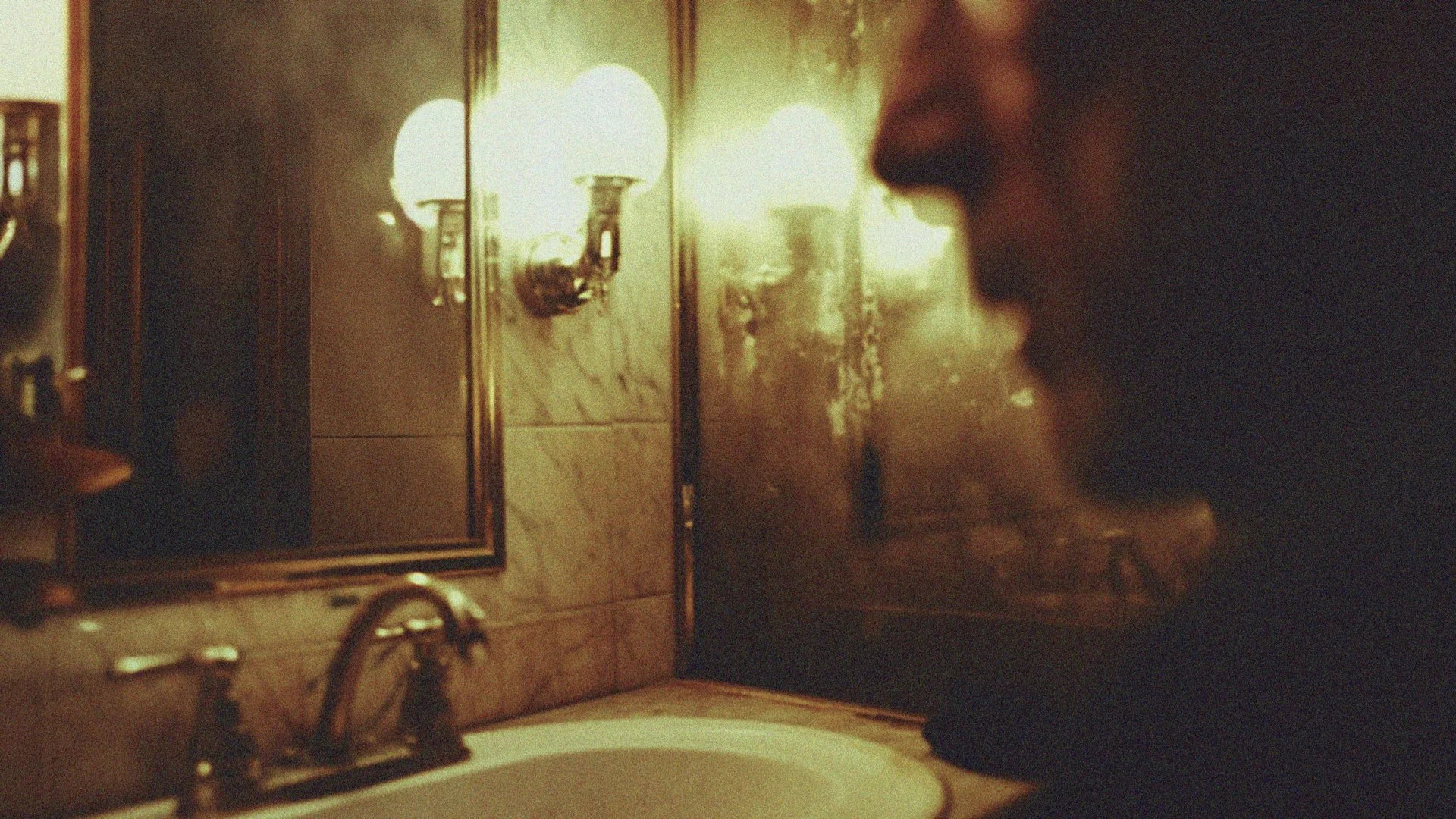
Eight years later…
ACT 1
NEW YORK CITY, 1983
Eight years and two lackluster albums later, Leonard sits in a darkened hotel room, surrounded by scattered papers, obsessively working on a song that has eluded him for years. Two women sleep in his bed. On the television, MTV plays silently — Madonna and Michael Jackson signaling a new musical era that has left him far behind.
Phone calls intrude: Marty reminding him of a meeting at Columbia Records; his ex-wife informing Leonard he's missed their son's birthday. His world is unraveling. Critically respected but commercially irrelevant. Spiritually searching but personally adrift.
Meanwhile in upstate New York, John struggles to repair his dilapidated farmhouse — once intended as a recording studio for the unfinished record with Leonard. After being unceremoniously abandoned, John's career collapsed. The farm stands as a daily reminder of what could have been.
At the label meeting, executives deliver a thinly veiled threat to the Godfather of Gloom. "Half our roster names you as an influence, but each of your last three albums has sold worse than the one before. Influence isn't audience. So, what are we gonna do about that?" Leonard faces a stark choice: reinvent or disappear in the era of synthesizers and music videos.
Later, Leonard wanders the streets searching for a belated birthday gift to send his son, he walks into a small electronics shop where a display of RED CASIO KEYBOARDS catches his eye. He flips through machines pre-programmed rhythms, transfixed.
When Leonard calls John after nearly a decade of silence, the two meet for a lunch laden with unspoken history. Leonard doesn't mention his disappearance and John doesn't dare ask his idol to explain himself. But after Leonard suggests they work on a new album together, John initially balks at the opportunity, having convinced himself he's made peace with the past. But underneath his resistance lies the undeniable pull of Leonard's colossal talent and a creative collaboration that once defined John. Despite every instinct warning him against it, John can't resist the opportunity to once again work with his idol.
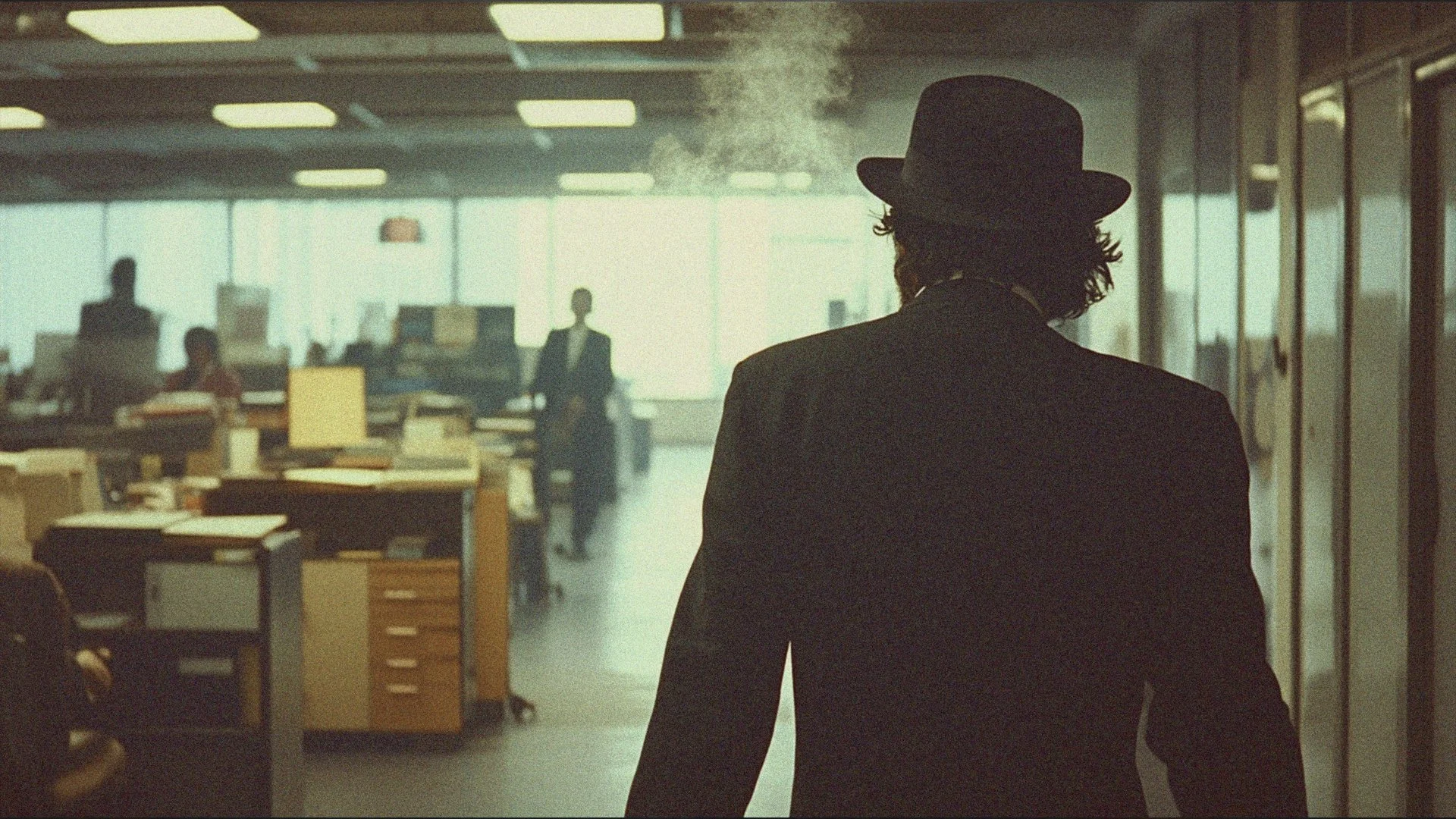
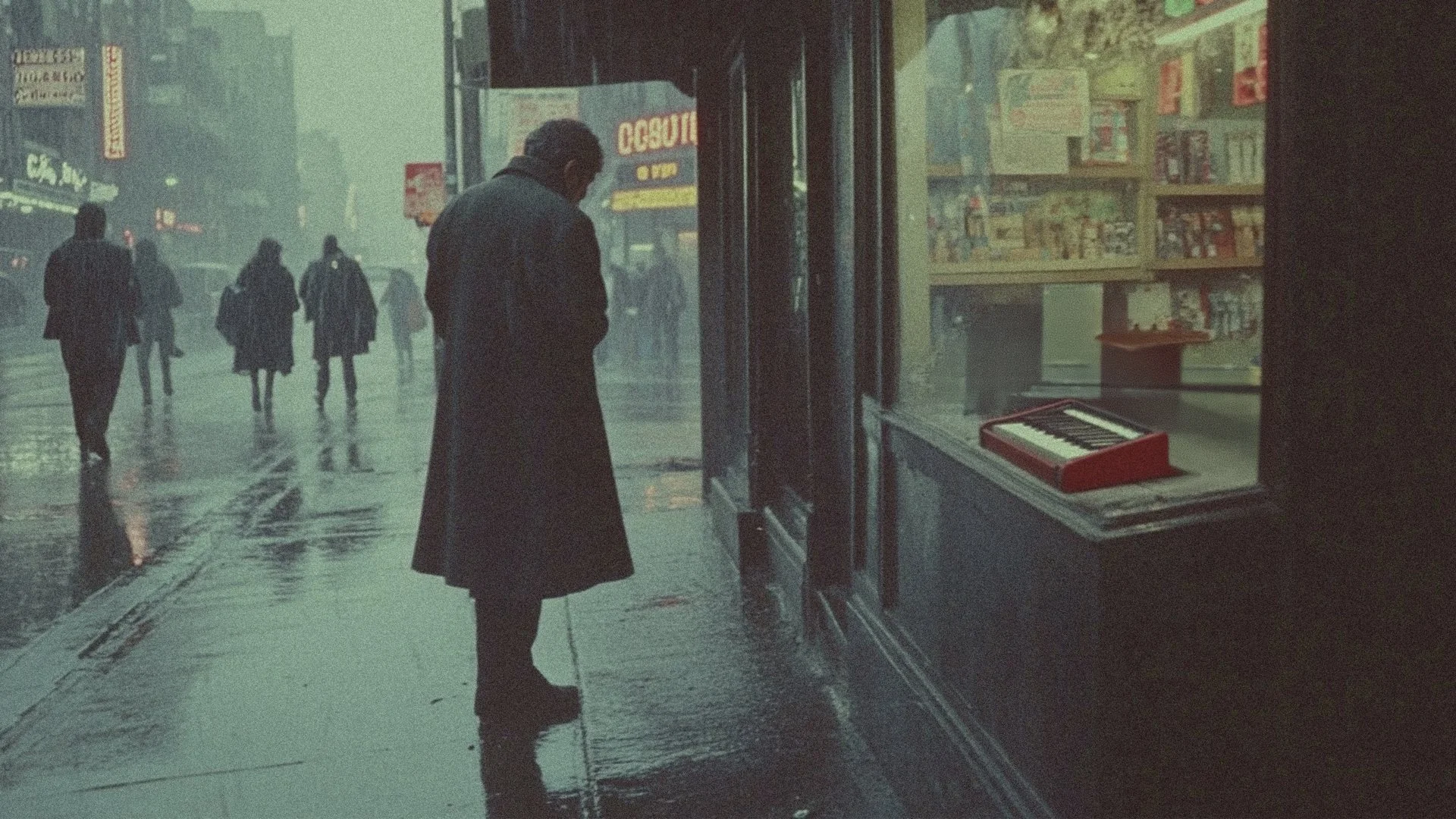

ACT 2A
In a cramped Times Square studio above a strip club, Leonard and John tentatively rebuild their creative connection against the backdrop of an industry that has moved on without them. When Leonard first sees the dilapidated space, instead of disappointment, he laughs: "Sinful sounds below. Sacred sounds above. It's perfect." We glimpse the spiritual seeker with a wicked sense of humor. With minimal budget and maximum skepticism from Marty and the label, they assemble an unlikely team of session musicians to craft Leonard's comeback.
On the first day of recording, Leonard sits in the studio with his new partners to play them sketches of the songs they’ll be building together. He sets his guitar aside and reaches into his bag, pulling out a tiny red Casio keyboard. He flips it on and presses play…
Ting ticka ting ting — Ting ticka ting ting. John and the musicians exchange sideways glances, unsure if the old legend is serious.
JOHN You want Leanna to translate that onto the Synclavier?
LEONARD No. I want it to sound just like this. New, but old.
JOHN Why? We’ve got a state of the art synth right here.
LEONARD Because this one is simple and imperfect.
What begins as uncertainty soon transforms into something electric. Leonard's lyrics about a dance at the edge of Holocaust camps paired with synthetic rhythms creates a haunting juxtaposition. As the sessions progress, the studio fills with a rotating cast of Leonard's world – JENNIFER WARNES lending ethereal vocals, LEANNE serving as both engineer and confidante, DOMINIQUE ISSERMANN capturing moments with her camera between passionate exchanges with Leonard in the studio hallway.
The makeshift family forms around a shared purpose — creating something that defies the disposable culture surrounding them. John watches as Leonard, so often remote and unreachable, begins to open up through the music. They're outsiders creating on their own terms. With each successful track, their confidence grows — these unlikely sounds becoming their secret weapon.
When it comes time to share rough mixes with Marty, John brings them to his mid-town penthouse. As the tracks begin to play, the audience and Marty hear them for the first time — Ting ticka ting ting. Marty’s face twists at the plunky Casio sounds.
Furious, he berates John for not having a better guiding hand and putting this whole album at risk. He tells John exactly what he thinks of him: "I don’t like you. I never wanted you here. And if you ruin this album, I swear on my mother I'll ruin your fuckin life."
Confidence crumbled, John returns to the studio to find Leonard playing a nylon-string guitar alone in the darkness. The melody is some strange Spanish waltz. Haunting but unfamiliar. As soon as Leonard senses John, he stops playing and puts down the guitar.
JOHN What song is that?
LEONARD Something that I've been trying to finish for a few years.
John, knowing not to pry about Leonard's private process, just nods. Turning around to leave when Leonard stops him — “Do you want to hear it?” As his boss lets John into this private creative space, his world narrows to Leonard's weathered fingers on nylon strings. The melody moves between major and minor with a hypnotic cadence, but it's the lyrics that stop John's breath — biblical imagery colliding with carnal confession, sacred ecstasy intertwined with profound longing. The word "Hallelujah" transforms from praise to lament to surrender with each repetition. John recognizes immediately that this is unlike anything Leonard has ever written — more vulnerable, more universal, stripping away the intellectual distance that often kept listeners at arm's length.
John moves to the console and they spend the night rebuilding the song together –- John adding keyboard textures, a soaring chorus, and the background vocals of a ghostly congregation. Something transcendent happens as Leonard's poetic precision meets John's musical intuition — the song simultaneously becomes both more intimate and more anthemic. At dawn, they listen back to what they've created, exhausted but electrified. This isn't just a song that will work; this might be Leonard's masterpiece, the culmination of everything he's been trying to say about love, faith, and human struggle for decades.
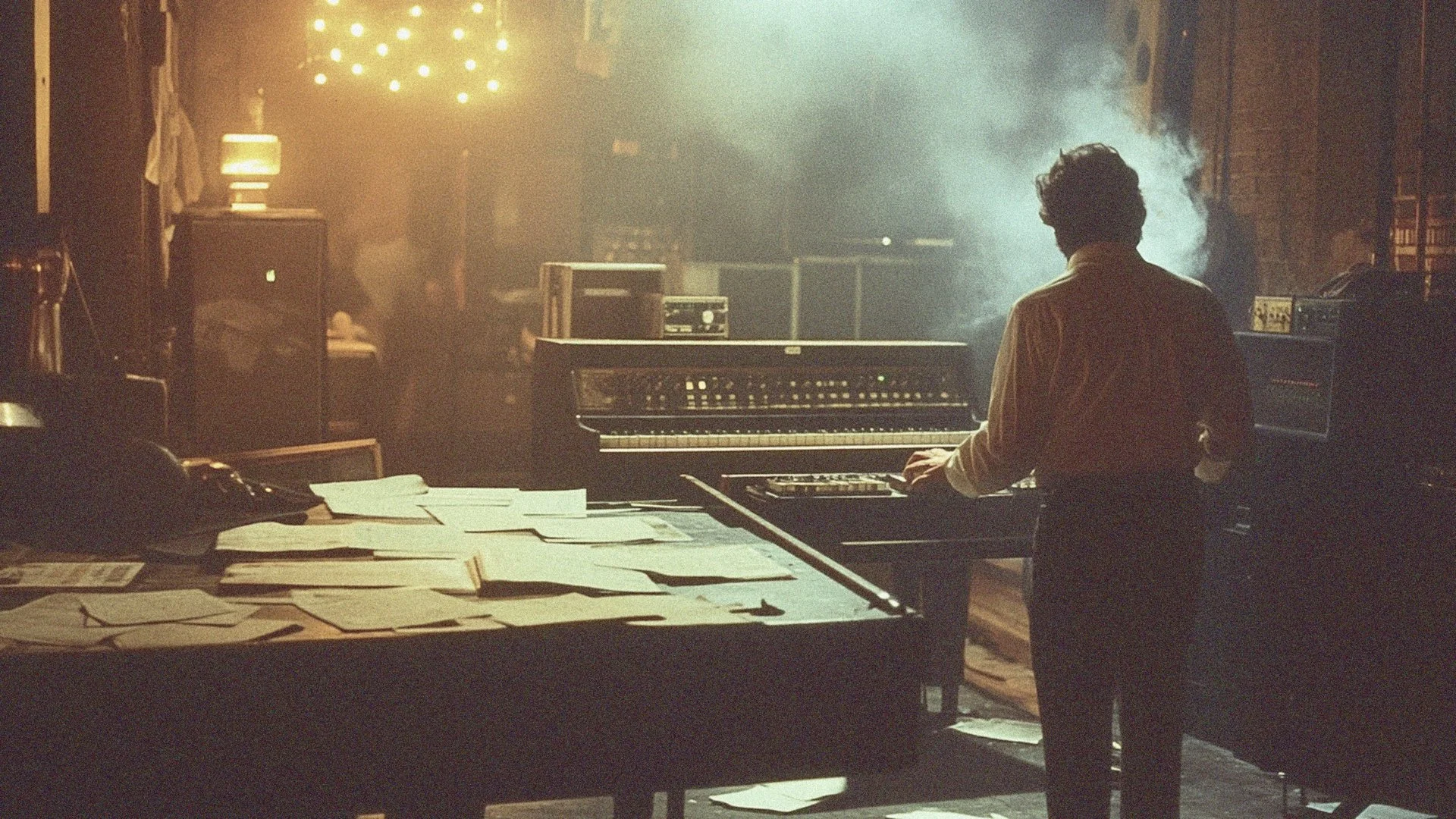
ACT 2B
The euphoria of creative breakthrough gives way to a brief moment of hope. When Marty hears the completed "Hallelujah," even he is moved, begrudgingly admitting it might be the answer to their prayers. For a fleeting moment, Leonard and John glimpse the possibility of triumph.
But as they push to complete the album, personal lives begin to unravel. Word arrives that Leonard's son Adam has been severely injured in an accident overseas — a stark reminder of the cost of living so far from those he's responsible for caring for. Leonard is torn between his obligation to his work and his family, guilt gnawing at him from both directions.
John's girlfriend, having reached her breaking point, packs her bags. "I've watched you rebuild your entire world around him again," she says "As if the last time wasn't lesson enough." As she walks out, John faces the possibility that he's sacrificing his future for a mercurial partnership.
Then, as they near completion, Marty delivers the final devastating news: a corporate shakeup at Columbia Records has installed a new president — WALTER YETNIKOFF, a man who harbors an old grudge against Leonard. Walter demands an immediate listening session, making it clear through Marty that the album's future hangs in the balance.
Racing against time, Leonard and John rush to assemble a final mix. The album is brought to Walter's office, but John is pointedly excluded from the meeting. Inside, Walter listens to "Various Positions" with stony indifference. When the music ends, he delivers the devastating verdict — Columbia won't be releasing the record.
Yetnikoff leans back with a self-satisfied smile —
"I know you're great, Leonard, but I just don't know if you're any good."
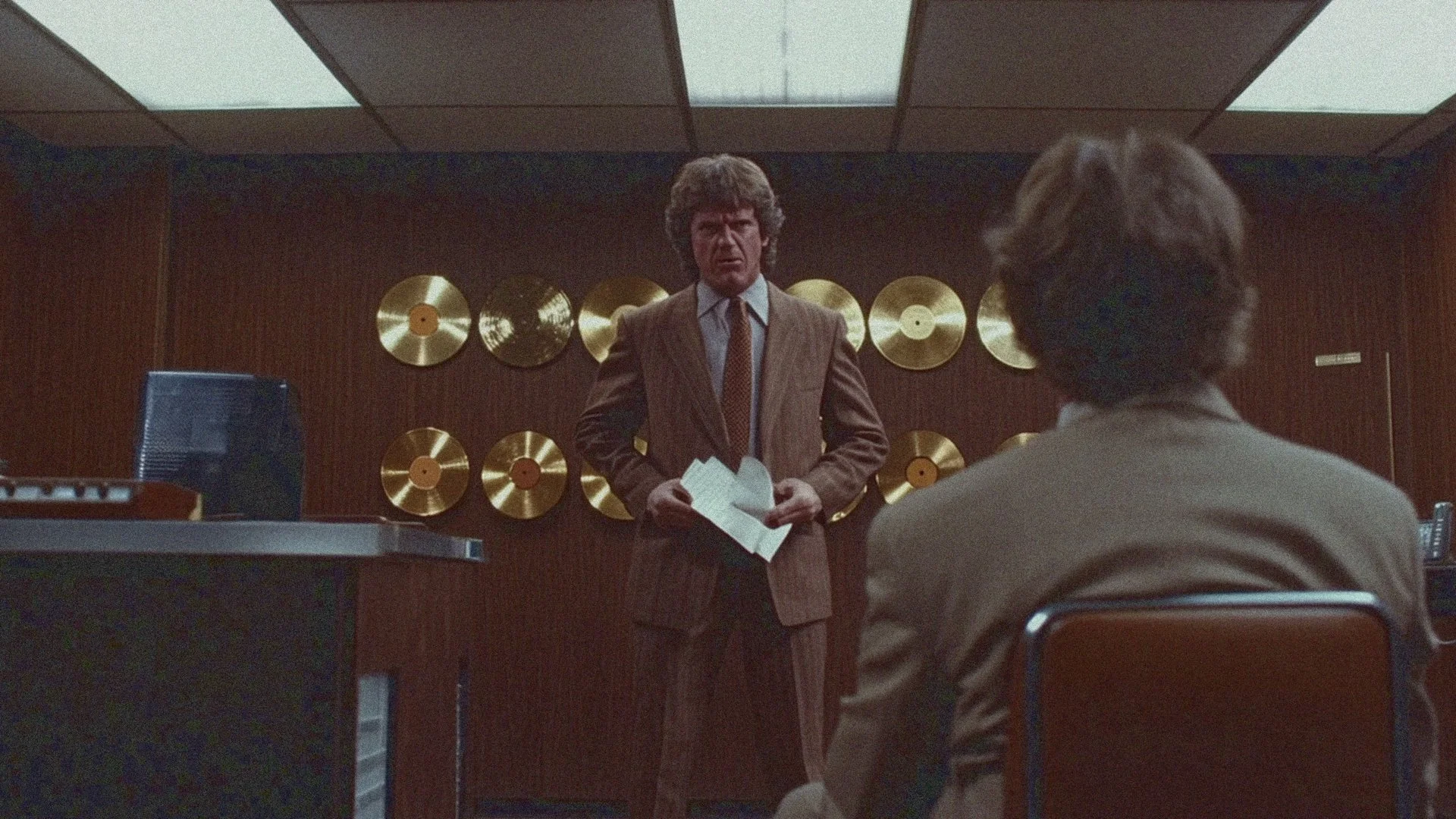
ACT THREE
In the aftermath of Walter's rejection, Leonard and John find themselves adrift. The album they poured their souls into — the redemption they both sought — exists but will remain unheard. Their partnership, so briefly rekindled, flickers in the harsh winds of commercial failure.
John takes a meeting with Marty, hoping to salvage something from the wreckage. Instead, Marty literally rips up John's contract before his eyes. "You won't be getting a cent," he seethes, "you've ruined what was left of Leonard's career." John, too defeated to fight back, simply absorbs the blow.
Later, John finds Leonard in his hotel room, packing. He stammers an apology for failing to deliver the commercial success they needed. Leonard, strangely unperturbed, offers a zen-like perspective: "The bird doesn't sing because it has an answer. It sings because it has a song." He explains his plan to tour Europe, where his artistry still commands respect. "The songs will find their audience," he says with calm certainty.
For weeks, John helps Leonard assemble a touring band, clinging to their partnership even as its inevitable end approaches. When they schedule a lunch to discuss future plans, John arrives at the hotel only to learn Leonard has already left the country. The front desk clerk hands John a RED ENVELOPE that John can't bring himself to open.
As Leonard's plane crosses the Atlantic, John returns to his farmhouse — once again abandoned by his hero and mentor. The farm, like John himself, sits in quiet desolation.
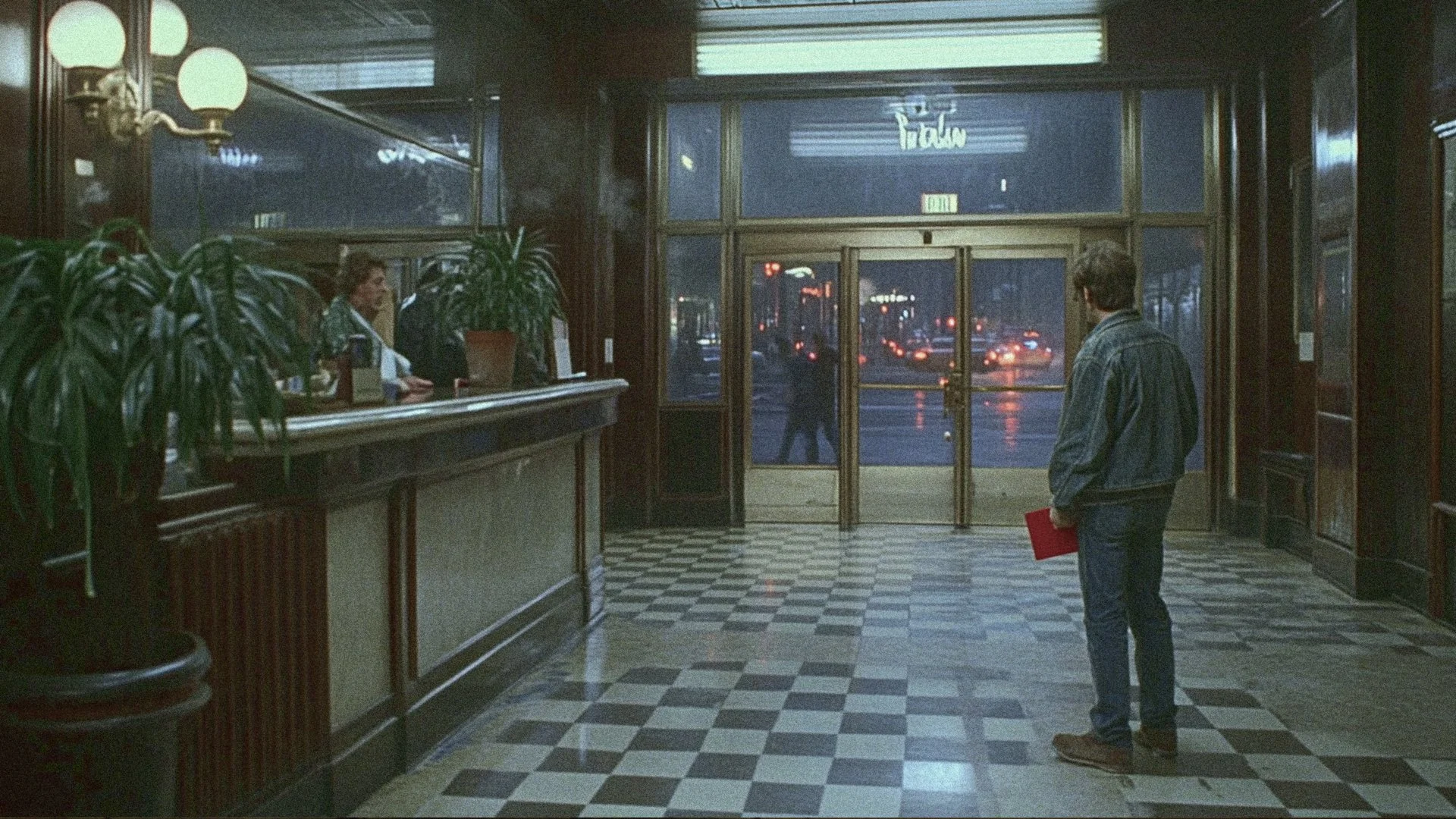
EPILOGUE
Fade in on John in his studio, 25 years older, silver-haired but vibrant. The once-dilapidated barn has transformed — modest, but beautiful. Warm wood and state-of-the-art equipment create a sanctuary where he works, focused on scoring a film as snow falls gently outside the window.
His adult son and wife appear at the doorway, telling him the opening ceremony is starting, he needs to come watch. John nods, saying he'll be there in a moment.
Alone, he opens his desk drawer, removing a worn RED ENVELOPE. He unfolds the letter inside, now creased from countless readings, and we hear Leonard's voice:
LEONARD (V.O.) John, don’t worry about the cracks. There’s cracks in everything. That's how the light gets in.
John smiles faintly, returns the letter to its envelope, and closes his studio door. He walks into the warm living room, settling beside his family as they gather around the television.
Cut to a small coastal home on the shores of Hydra. An older Leonard, now in his late 70s, reclines on his sofa, a nylon-string guitar resting across his lap. His fingers idly pluck notes as he hums something inaudible to himself. The blue light of a television washes across his face.
He leans forward, reaching for the remote to turn up the volume. We see what he sees — the opening ceremony of the Olympics. K.D. LANG stands at the center of a vast stadium, her voice carrying the opening notes of "Hallelujah” to billions around the world.
As the camera returns to Leonard's face, bathed in the television's glow, the song crescendos. For a moment, his expression is unreadable — then a small, almost imperceptible smile forms at the corner of his mouth.
